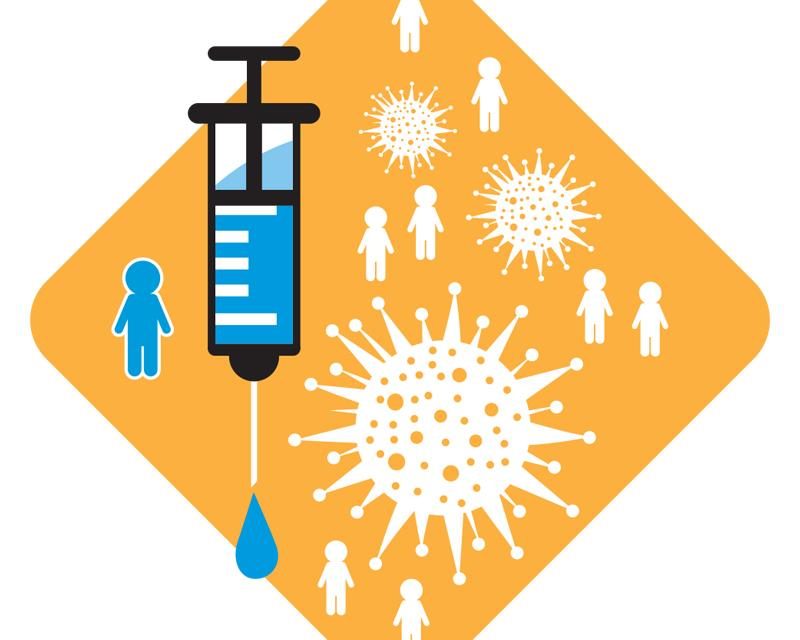“Covid-19 is overrunning our hospitals,” Michigan Medicine CEO Marschall Runge warned on December 8. That day, the health system had eighty-seven Covid patients hospitalized in Ann Arbor. Most were unvaccinated, including all nine patients on ventilators.
And they weren’t the only ones imperiled by the resurgent pandemic. “People have died, and will die, of non-Covid-19 disease in our area, across the state and across the nation,” Runge warned, as pandemic patients crowd out others in need of care.
New cases in Washtenaw County peaked at 1,697 that week. As the Observer went to press, Michigan Medicine had 125 Covid patients hospitalized here, and fifty-three more in the Grand Rapids area. St. Joseph Mercy Ann Arbor had 137, and there were another 220 in St. Joe’s hospitals in Chelsea, Howell, Livonia, and Pontiac.
“For weeks, our clinical teams have been operating at extremely high capacity,” St. Joe’s warned patients by email. “This is impacting how we care for those who are seriously injured, suffer a heart attack, stroke or experience another medical emergency.”
The Delta variant is a factor in the surge, says Susan Ringler-Cerniglia, communications and health promotion administrator for the county health department: “It’s more contagious, and we’ve seen that. We’ve also seen a dropping and lessening of restrictions in many, many ways.”
Like Michigan Medicine and St. Joe’s, the health department is urging everyone who hasn’t gotten the vaccine to do so, and everyone vaccinated more than six months earlier to get a booster.
The situation is even more dire now that the new Omicron variant has arrived–the first local case was reported as the Observer went to press. “No doubt we will start to see more instances,” Ringler-Cerniglia says.
“It’s very serious,” says U-M physician and medical historian Howard Markel. “The wave that’s coming is going to be bad–for the anti-vaxxers, but also innocent breakthrough cases [in vaccinated adults], and kids.”
“It’s hard not to get demoralized,” Ringler-Cerniglia acknowledges. “It’s a struggle to figure out what else we can possibly do or say to help people really understand and embrace the measures that we do have.
“We don’t have perfect public health measures–but we have vaccination protection that, for a vaccine, is very, very good. Even when we see the reduced effectiveness against these variants, we still have overall good protection, and especially against those most severe outcomes–hospitalizations and death.”
Ringler-Cerniglia’s advice: layer up protection. Along with vaccination, “we need to layer up literally, with a mask–to have that in place. To use distancing whenever possible. And ventilation … that becomes more and more difficult with the colder weather, but if you can open windows or have better air flow or circulation, that makes a big difference …
“And of course, hand washing is always a public health favorite.”


